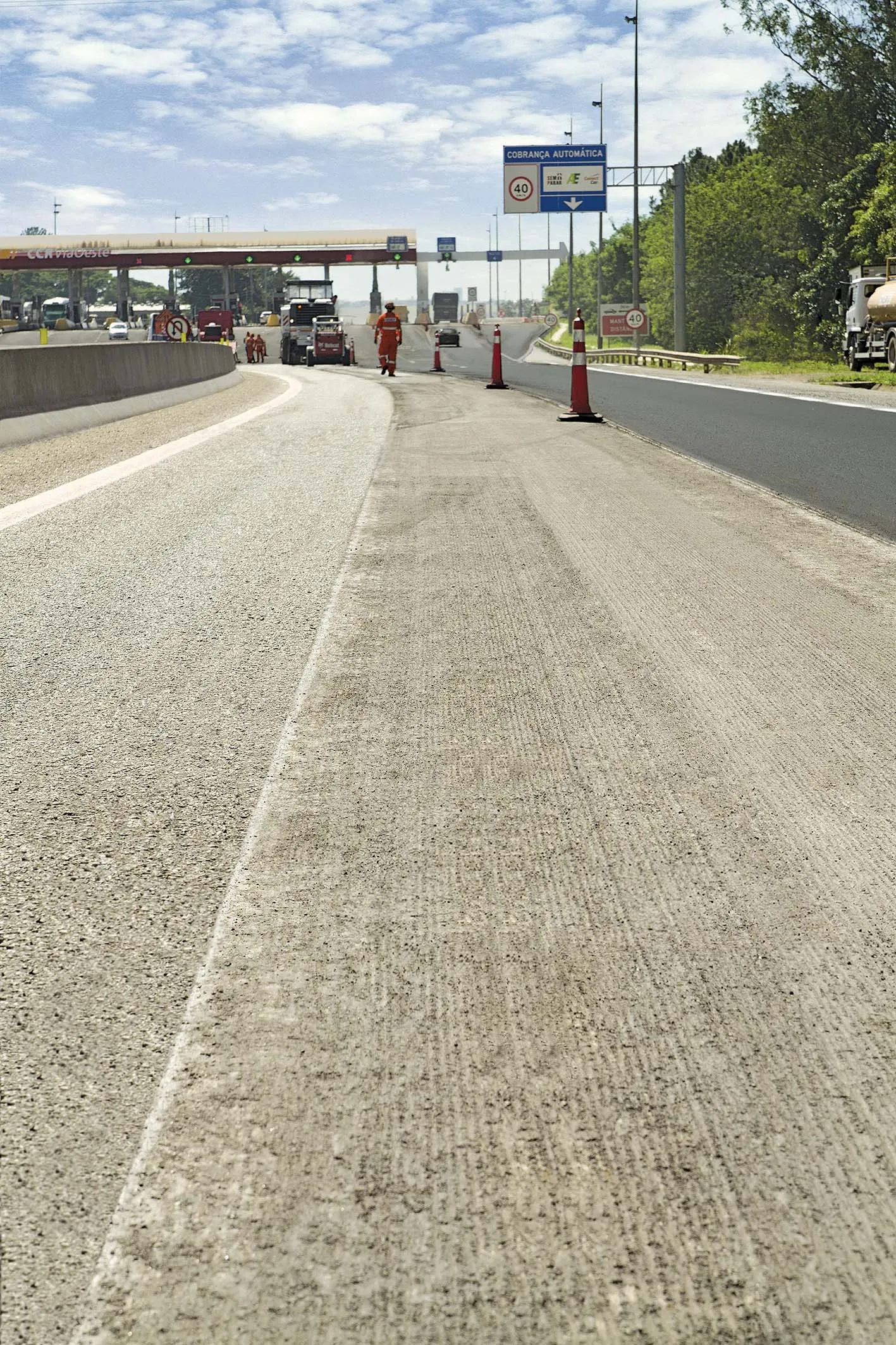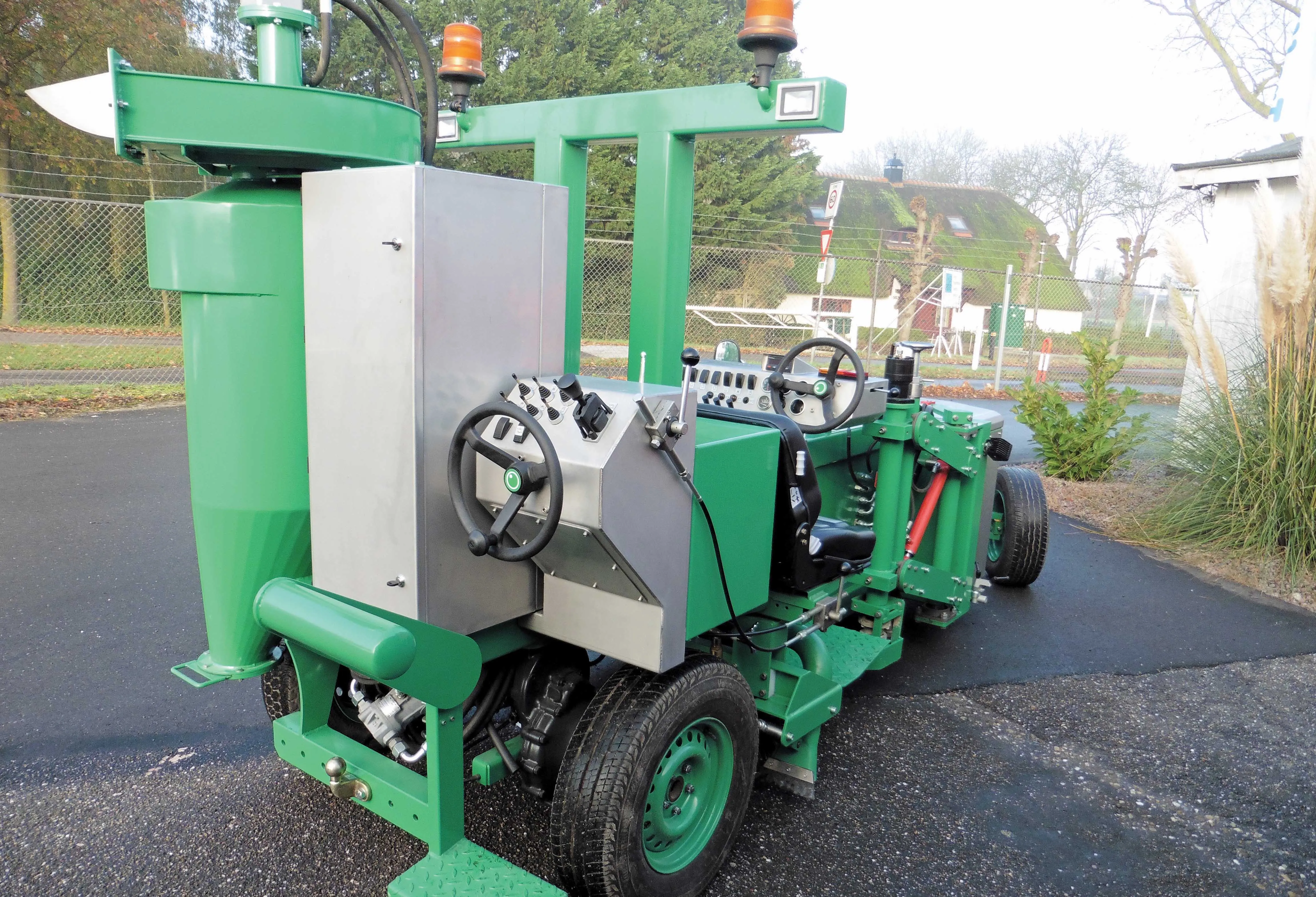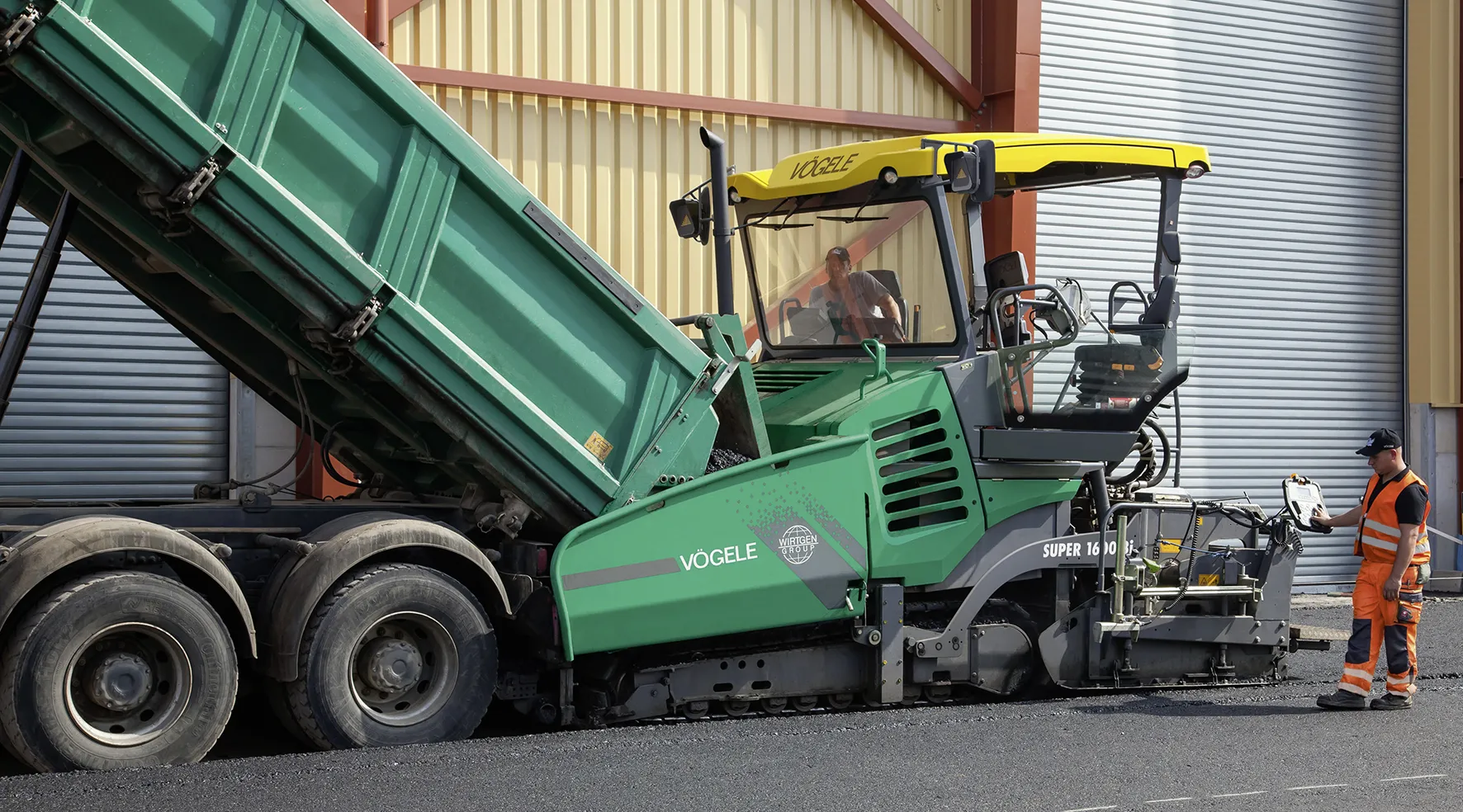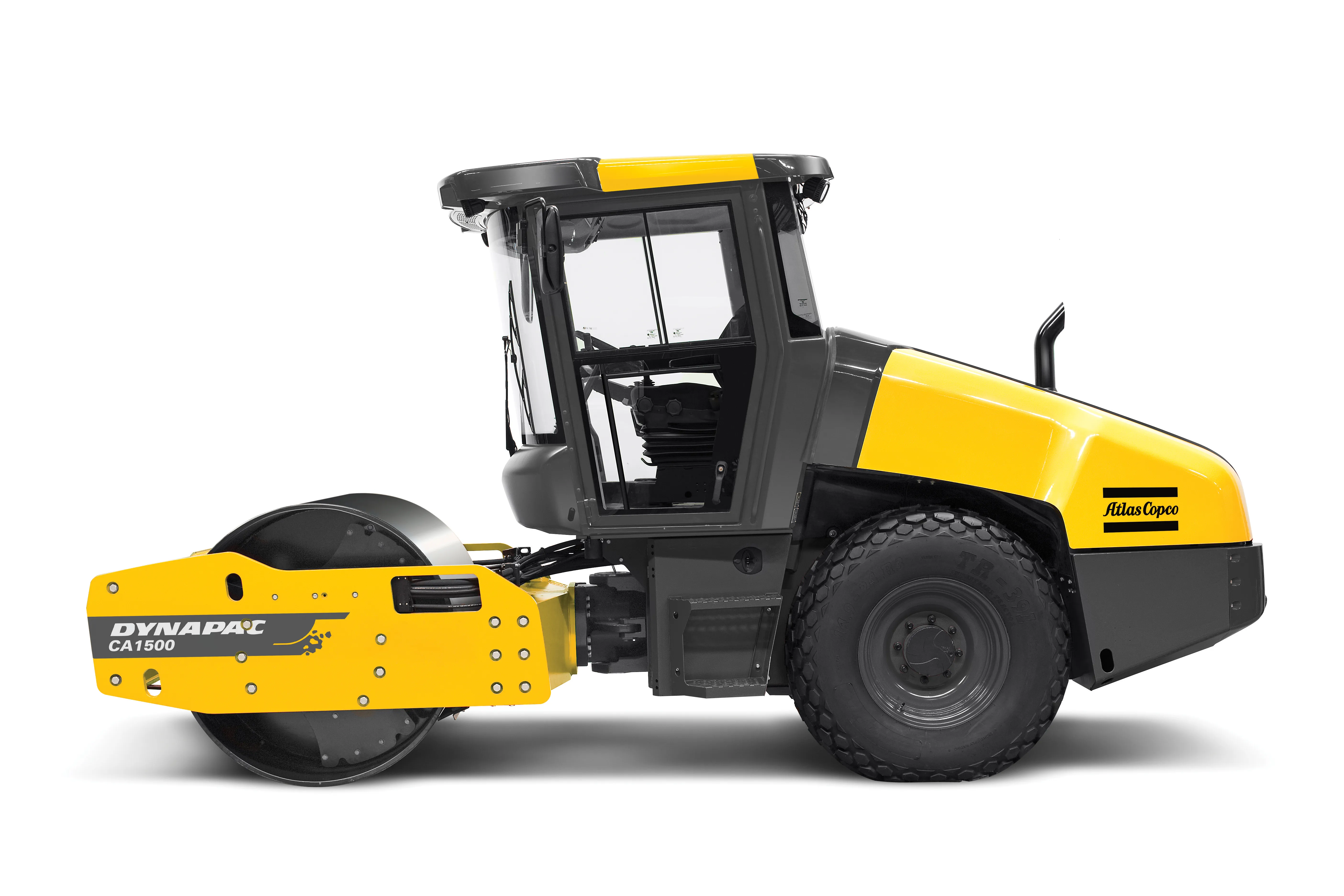
Super-fine milling is a technique that has been used in Brazil to rehabilitate roads for the World Cup
The rehabilitation work had to be carried out speedily and economically, while minimising traffic disruption. To meet these requirements, contractor Fremix Engenharia e Comércio has been using a
The World Cup finals started on 12th June 2014 with the first match,between Brazil and Croatia, taking place in the Arena de São Paulo, in the Itaquera district in the eastern part of the city. São Paulo city and road building contractors launched a major infrastructure programme to improve the roads in the area. The Raposo Tavares (SP-270) motorway connecting the federal state of Mato Grosso du Sul with Sao Paulo was one of those in need of repair.
Varying degrees of damage to the surface course at several points between Sorocaba and Araçoiaba da Serra meant that the road surface no longer featured the required skid resistance. Rehabilitation was necessary, but without removing the complete roadway, as the base course was still undamaged. The concessionnaire, Concessionária de Rodovias CCR via Oeste, enlisted the services of contractor Fremix Engenharia e Comércio Ltda. to rehabilitate a total area of roughly 154,000m² with a traffic lane width of 3.4m.
To meet the tight schedule without blocking the congested roads, Fremix opted to use a super-fine milling drum. This modified version of the standard cold milling method produces a level skid-resistant surface in just one pass. Further steps, such as paving a new surface course, are normally not necessary. Alternatively, a thin surface course can be paved at a later date.
Valmir Bonfim, Site Manager for Fremix chose a Wirtgen W200 cold milling machine with FCS super-fine milling drum LA 6x2 for the job. Unlike standard milling drums, super-fine milling drums have smaller tool spacing. This allows for more cutting tools: while a standard milling drum has 168 cutting tools, the LA 6x2 is fitted with a total of 672 cutting tools.
With the super-fine milling drum the firm was able to groove the pavement at intervals of 6mm and to depths of 2-20mm, according to José Marques Pereira, the man in charge of Fremix's road milling team. This creates a fine surface texture meeting all the requirements of a skid-resistant roadway in just one pass. He added that this method allows traffic to flow on the adjacent lane while the work is in progress, while the rehabilitated lane can be reopened to traffic as soon as the milling work is done.
The Flexible Cutter System, or FCS for short, allows the milling drum to be changed quickly and easily. The milling drums on these cold milling machines can be accessed from the side and are simple to remove. It is lowered onto a drum carriage for easy withdrawal from the housing. The new drum is installed just as easily.
Quick tool changes allow the owner to use the machine for a variety of jobs. Several FCS drums with different working widths and tool spacings are available for the W200. A drum change takes no more than two hours and the cold milling machine is transformed from a standard machine to a super-fine milling machine. The FCS greatly increases flexibility, creating a host of new potential uses and considerably boosting the machine's cost-efficiency.
LEVEL PRO supplies information on the levelling process and allows the operator to control the milling depth without leaving the platform. A controller analyses the data from various plug-in sensors, controls the machine's height adjustment and transmits the data to the control console, while onboard software optimises milling performance.
The interaction between key components – diesel engine, travel drive, milling drum drive and belt drive, water spray system and height adjustment – is centrally managed by Wirtgen's intelligent WIDRIVE machine control system. In this way, WIDRIVE automates many functions which would normally be performed manually by the operator, optimising fuel-saving. Meanwhile the proprietary parallel to surface (PTS) system is said to guarantee precise working depth, while relieving the operator of the need for continuous readjustments. This system is said to ensure that the machine is dynamically aligned parallel to the road surface.
As part of the PTS system, the floating axle compensates for any surface unevenness, ensuring alignment of the machine at right angles to the direction of travel. PTS also includes an automatic backup function for resuming at the required milling depth. In this way, machine operation is simplified while maintaining levelling quality.
Intelligent speed control (ISC) also helps operations and comprises three basic functions; electronic traction control; automatic adjustment of the speed of individual crawler tracks in curves; optimised rate of advance. The ISC system’s traction control minimises individual crawler track slip in tough conditions and ensures optimum traction. It also electronically adjusts the speed of the inner and outer crawler tracks in curves, reducing wear on the crawler shoes. ISC also adjusts the advance rate to optimise productivity and power.









